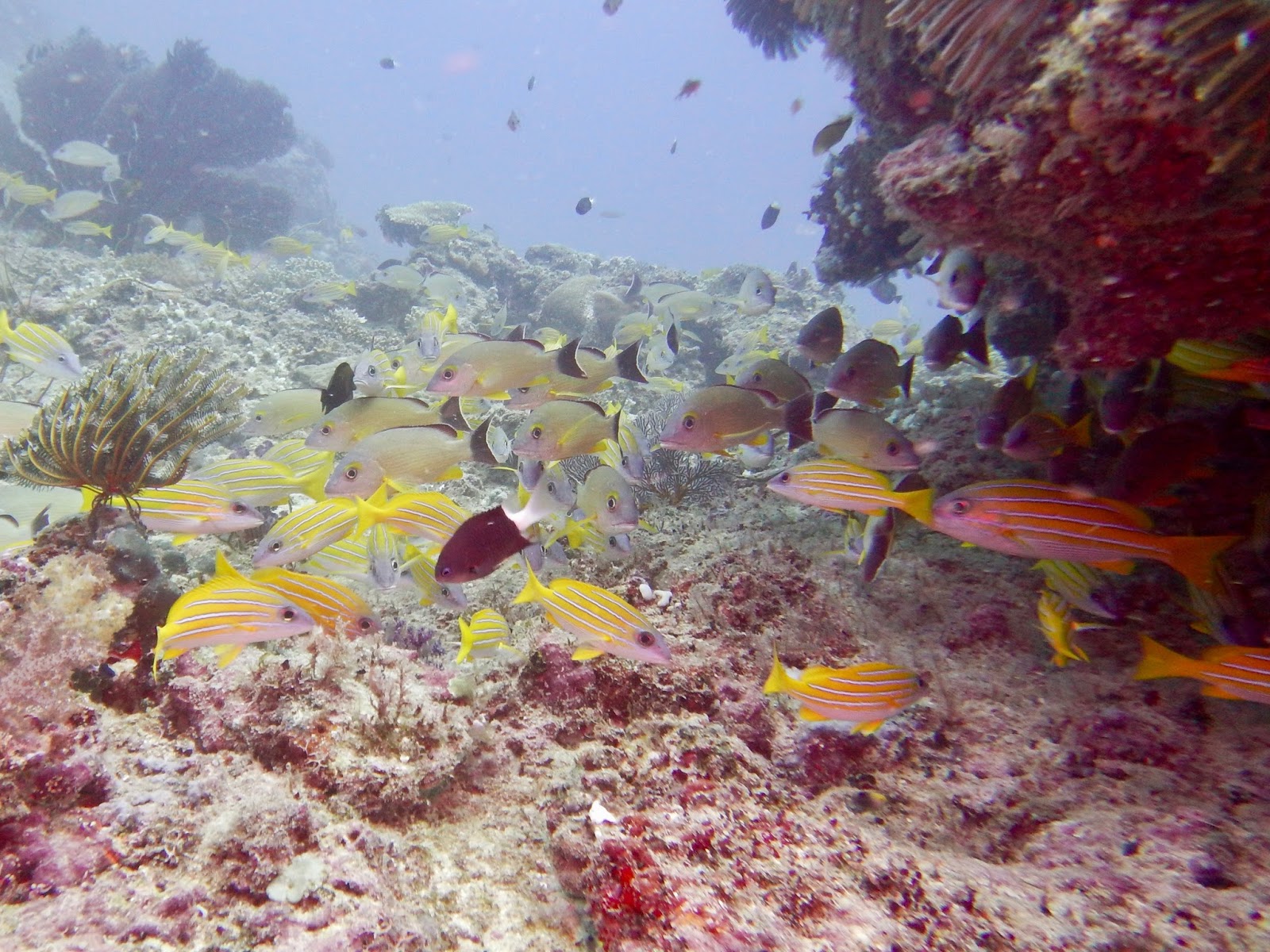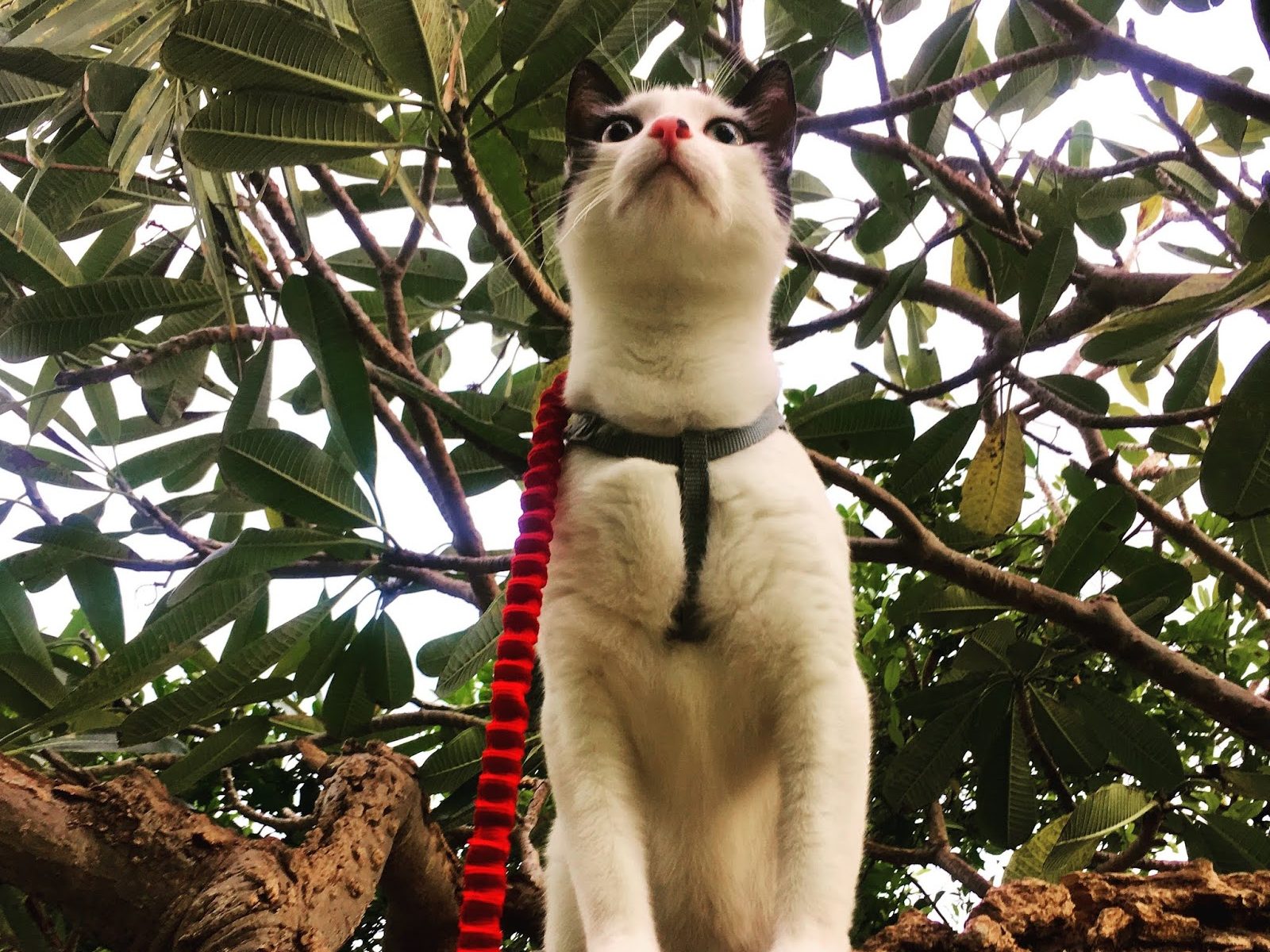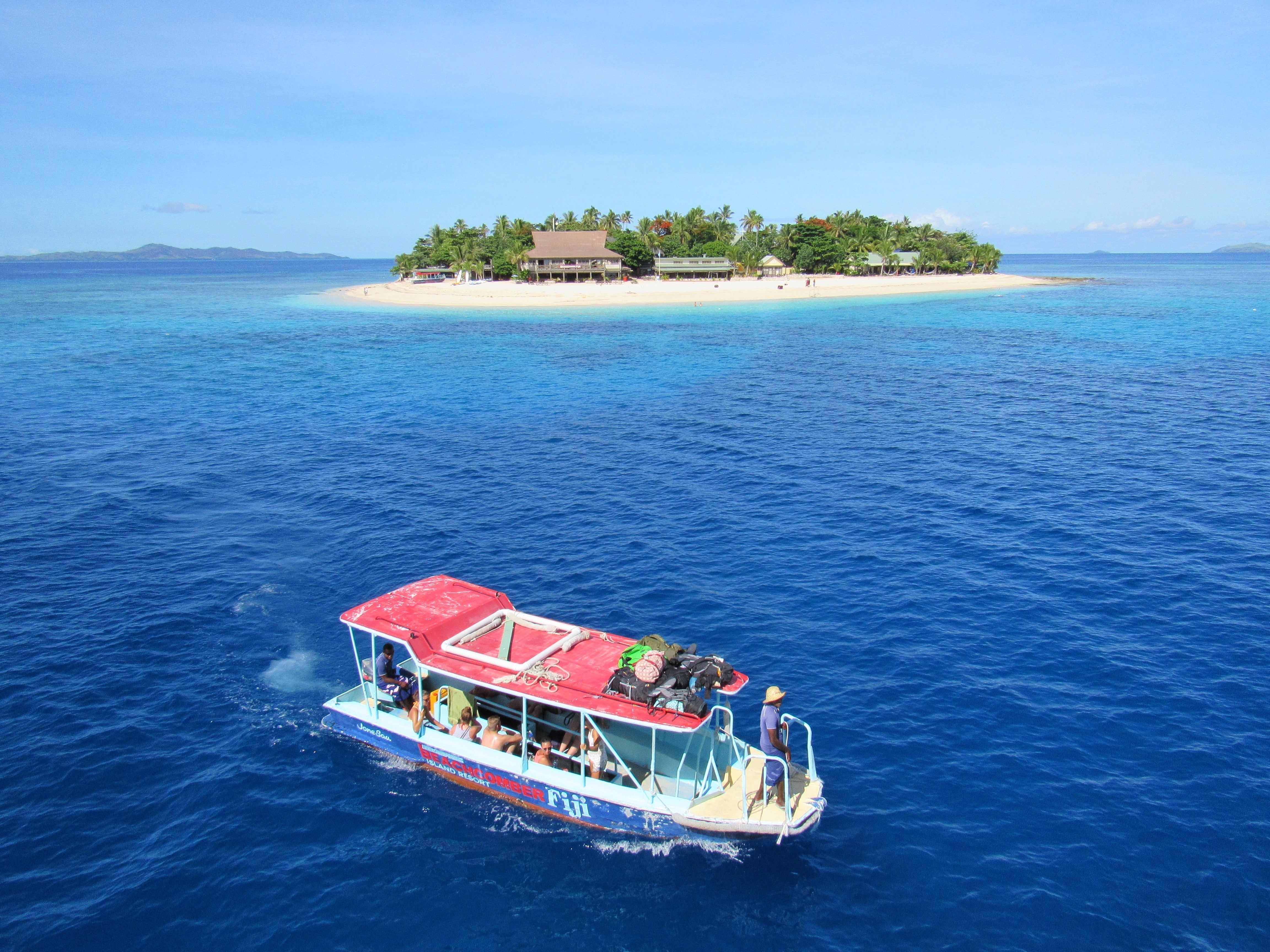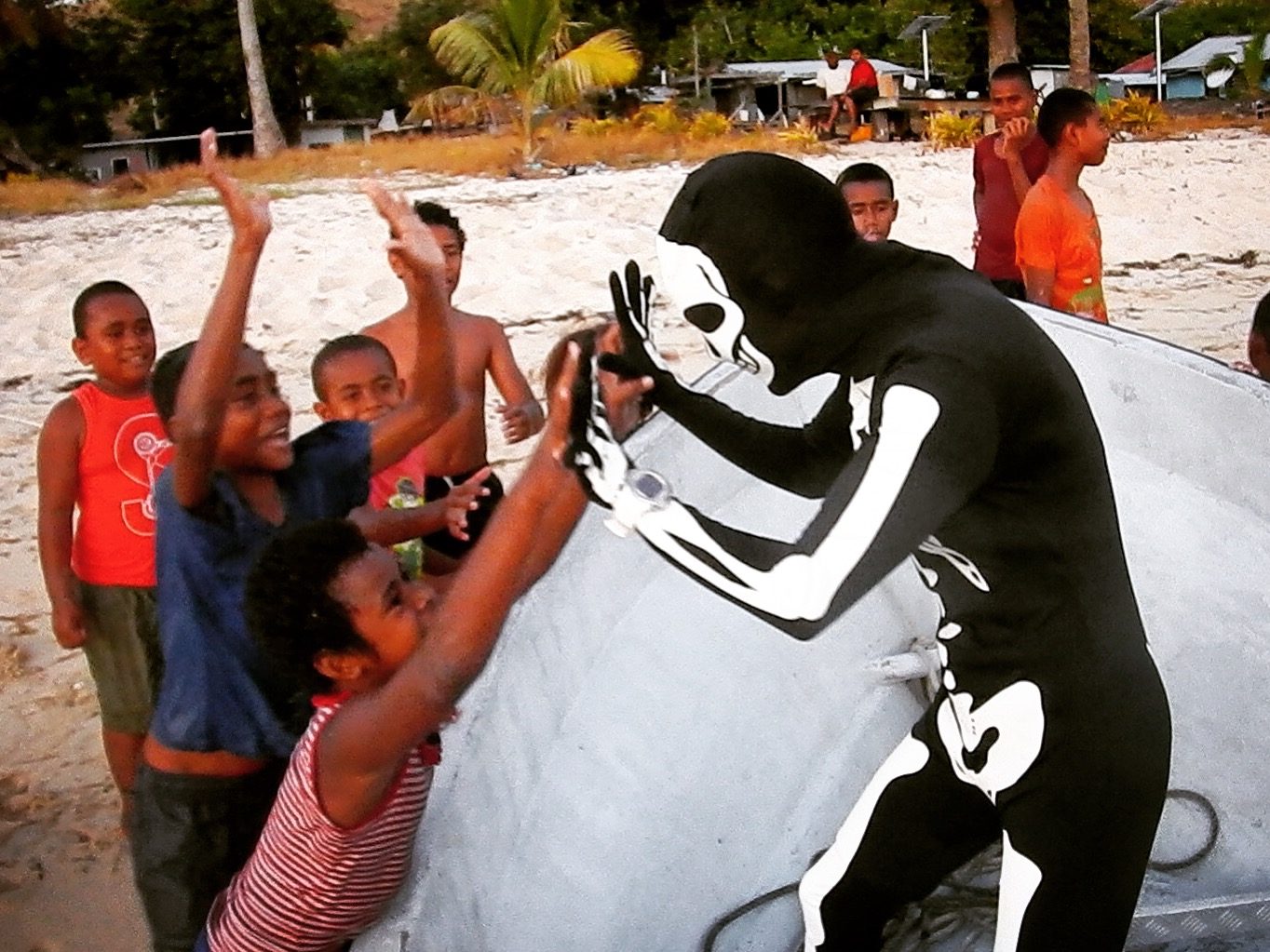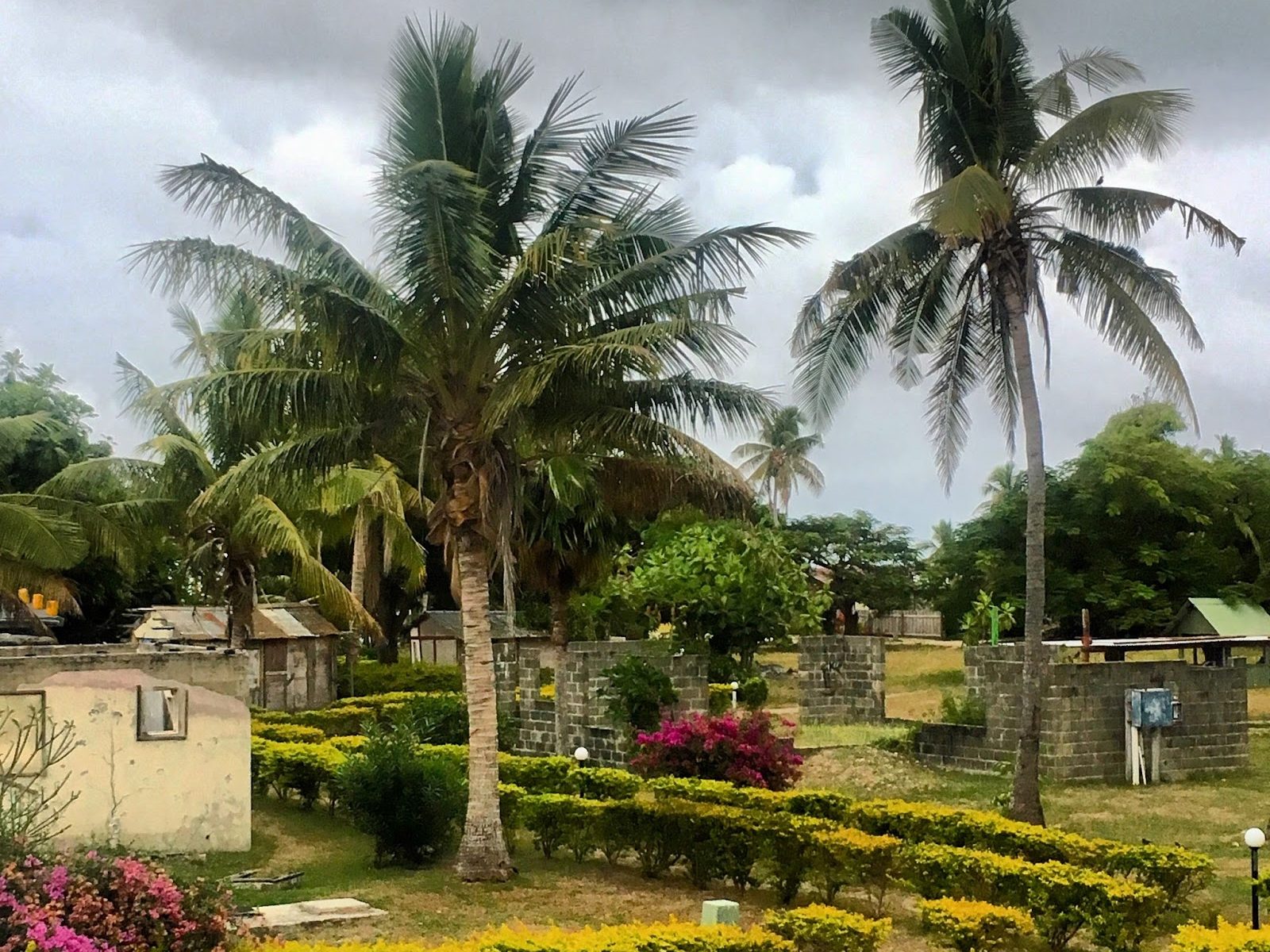
It’s been a long time since I attempted to compose an entire story with something as primitive as pen and paper. Letters, sure, but an entire story? I’m having flashbacks to a little piece of prose I tried to compose in middle school in my very best script handwriting (which was always too sharp and pointy and lacked the right curves in my opinion). It was a “short” story about a girl who played the cello on the Titanic, and went on for page after page because the story just kept coming to me all at once as I wrote. I thought it was a masterpiece. My mother deemed it too long and secretly removed several pages before I submitted it. That is the last time I remember writing anything longer than a page with a pen.
I came to the mainland today, as I do every 12 days, on my day off, with a backpack full of laundry. All of the locals on the island do laundry by hand. When we first moved to Mana Island, Fletch bought us a little camping washer that we would crank by hand. It was a novelty for everyone. For us because we were used to the modern convenience of putting all our dirty, stained, and stinky clothes in a machine, pushing a button, moving on with more important parts of our days, and then magically coming back a while later to clean, but still wet clothes. To think of what an inconvenience it felt like back then to put the clothes from the washing machine into the drying machine and having to push yet another button. Now there was no magic button. The little camping washer depended on our sweat and muscle instead of electricity. And drying was dependent on the weather. Luckily it is always sunny on Mana Island.
 |
| Ratu Kitty Cooper likes to supervise. |
The little camping machine was novelty for the locals because having a crank to turn was a very high tech convenience indeed. They had nothing but their bare hands and a communal sink. Or sometimes the clothes were just worn into the ocean and hung on a line and that was that. The camping washer held about three t-shirts and two pairs of shorts at a time, so it was necessary to have it churning during most of our very limited free time. It wasn’t long before we got lazy and found a hotel in Nadi on the mainland that was posh enough (by Fijian standards) to have laundry facilities in the room, and not just a washing machine, but a dryer to boot! Dryers are a very rare thing in this part of the world. If you own a dryer, then you have really made it in life. The hotel, horribly named the Ratsun, was brand new at the time when we first started staying on our days off. Now it is a year old, and it is all too obvious the level of quality that went into building the place. Already paint is chipping, upholstery is tearing, doors aren’t latching… Fletch and I keep an ongoing, nonexistent list of what is wrong with each room. We’ve stayed in most of them. In room 205, for instance, the dryer stops every 5 minutes unless I find a screw to wedge into the appropriate spot, which causes it to keep running when the door is open. No matter, it still feels very luxurious to be able to put my clothes in a dryer, rather then having to compete for space on the clothes line with the Chinese neighbors. They always find a way to hang every last item they packed onto the 6 meters of clothes line we have to share. It used to drive me nuts when I would open the front (and only) door in the morning, to be greeted by some large lady’s granny pantaloons, which would obstruct my entire view of the ruins of the rest of the resort that burned down back in the day. A burned down building where the locals still go to shower years later is much easier on the eyes than some overweight stranger’s underpants, but now I just smile and think that in less than two weeks time, I will have access to a dryer.
 |
| I get that dryers are as normal as sliced bread back in the gold ol’ US of A, but here they are a rare commodity. |
 |
| The view from our room. |
Preparing for this journey to the mainland can be quite a feat, mentally as much as anything. Island life is vastly different than city life, even when that “city” is only 7.8 square kilometers (3 square miles) with a population of 42,000. That’s 41,000 more people than Mana has. Ok, I don’t know if that is exactly true. Mana has two villages, both with a few hundred inhabitants. Then there are 4 resorts. Tadrai is the place you stay when you lack imagination and have run out of other things to spend your wealth on. For $3,000 per night, there are many places in Fiji that offer a lot more than 5 bungalows on an otherwise deserted beach. Places with unlimited massage packages and rooms with private pools, for example. Mana Island Resort averages around $500 per night and can house 300 people. It feels like a large school campus aimed to cater to quantity over quality, complete with cafeteria style food. People who stay there refer to it as “Paradise Alcatraz.” Ratu Kini where we live and work averages around $100 for a dorm with full board, to $300 for a private with full board. Apparently we have a max capacity of 50, but I don’t remember the last time we had more than 30 guests. Then down the beach is the other backpackers’ place, the super budget one, where they drag mattresses into the closet when they overbook, and only run the generator a couple hours a day. Seeing as how they always procure an extra mattress and an extra closet when it gets very busy, I’m not sure what their max capacity is, but you can see that Mana Island is a very small place, the kind of place where you greet everyone by name on your way to work in the morning. The second an unfamiliar face turns up, everyone reminds you to not leave your phone sitting out. Mana Island is also the kind of place that you can leave your phone sitting out all day and it will still be there. I know I’ve written twice now about stolen phones, so you’re probably scratching your head wondering which way it is. Mainland Fiji is a whole different culture where petty theft is not uncommon. On Mana Island, our phones should have been stolen every other day for as much as we leave them lying around. Yet in a year and a half, Fletch’s phone got nicked once, and to this day, everyone warns the guests when the boat arrives that the thief used to work on. The thief was fired of course, but still everyone is wary of the boat.
While it may be safe to leave a valuable piece of technology that you have your entire life stored on lying around, there is one thing you should never ever leave unattended: flip flops. Especially if you have large, Fijian sized feet. Flip flops will walk away as soon as you leave them on the beach to go for a swim. Now why anyone bothers with shoes to begin with is beyond me. There is no pavement on Mana Island, just sand and dirt. Sand gets inside flip flops so you’re walking on it anyway, why not just ditch the shoes? There is one field full of stickers that you should never ever walk through bare footed unless you have the hobbit-tough feet of a Fijian (I found this out the hard way my first night here), but that field is easily avoided, deeming shoes unnecessary. Until it’s time to go to the mainland to do laundry. Then I have to tear the room apart trying to find the last place I tucked my shoes away for safe keeping. Shoes and money. Apparently when you want food on the mainland, they like some money in exchange. I’ve gotten very spoiled for a year living in a way where money just gets shoved in a drawer somewhere because there is literally nothing else to do with it. You see, in exchange for diving and carrying some tanks up and down the beach (gym time), I get a shoebox to stay in, three meals a day, and a crate of beer per week, which I donate to Fletch on account that I don’t like beer and he enjoys a cold drink after laboring in the sun all day. There are no stores of any kind on Mana, save for our one little shop that sells cookies and two or three other processed, packaged food items. Those don’t appeal to me so I really couldn’t spend my money on the island if I tried.
Viti Levu, the big island is another story. Money becomes very important. So do shoes. Fletch and I forgot shoes once and had to wander barefoot to the nearest store in search of flip flops. After wandering through two or three stores that smelled of Indian spices and body odor, we finally found some rubber flip flops for $5. In an effort to prepare ourselves for the inevitable time when we would again forget to bring shoes, Fletch and I carefully hid our new $5 flip flops in the storage shed at the jetty so that they could be there waiting for us. You don’t leave flip flops unattended in Fiji though. Obviously they were never seen again.
Fletch also forgot to bring money with him not too long ago. The money wasn’t as big a deal as you might think. After a year and a half on Mana, and two years in Fiji, Fletch has many friends here whom he has helped on numerous occasions, and so it wasn’t difficult to find someone to borrow $50 from for a day. I sent his wallet over on the next boat and we both had a good laugh that he had forgotten to bring money with him an hour boat journey away.
I remembered to bring money and shoes this time around. What I did not remember to bring was a charger for my iPhone or iPad, and unfortunately, I left with only a 10% charge on the iPad. How on Earth would I entertain myself while pushing the magic button that does all my laundry for me?! Normally I have a book, a real life ink and paper book. I like reading the old-school way, and watching the pages slowly curl in the humidity the deeper in I delve. But last night I finished a particularly funny book, and desperate to keep the laughs coming, downloaded another of the same author’s books onto my iPad. Technology is amazing. I can have any book I want at the snap of my fingers. Not too long ago, being in a non-English speaking country would have meant traveling with a stack of heavy books if you wanted reading material. In 2018, you can be on a spit of sand in the middle of the Pacific Ocean and have instant access to nearly any book ever written. Unfortunately that book only has 10% battery left, and I was silly enough to not bring a charger. Oh the horror. Hence, why I still prefer to tote around physical, tree-killing pages splattered with ink. So to amuse myself on my day off I walked downstairs to the Shop n Save and spent $3.83 Fijian on a notebook, a pen, and a pack of coconut cookies that I usually don’t eat, but somehow seemed essential for the coming afternoon of old-fashioned blogging. I can’t tell you how many times I’ve lugged my computer around, assuring myself that I would be writing every moment of spare time I had, only for it to sit there and collect dust, and yet here I am rambling on with a pen and notebook, drinking tea, and listening to the pouring rain outside. There’s something very refreshing about it.



